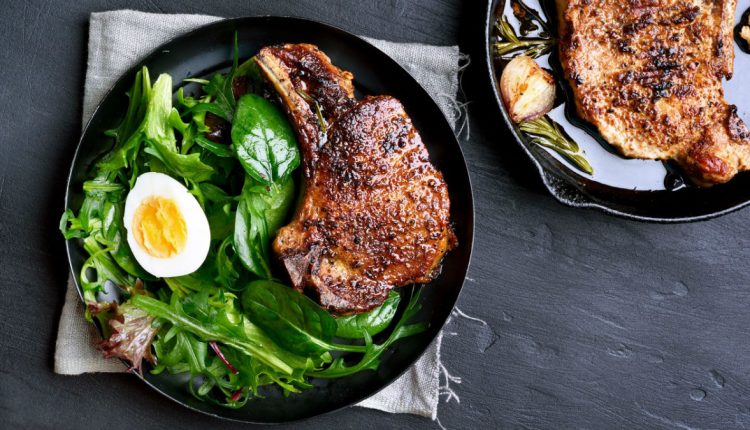
The Importance of Iron
Iron is a mineral that is naturally present in foods such as lean meat and seafood (mainly oysters). It is also available as a dietary supplement. This nutreint is essential for the formation of hemoglobin, a protein in red blood cells that transfer oxygen from the lungs to the tissues. It also plays a pivotal role in facilitating your metabolism through myoglobin, a protein that provides oxygen to muscles. In addition, it is essential for growth, development, normal cellular functioning and a healthy immune system.
What Are The Effects of Low Levels of Iron?
Low levels of this nutrient in the body can lead to iron deficiency, which in turn can cause anemia. Anemia is characterized by a decrease in the number of red blood cells or less than the normal quantity of hemoglobin. Since hemoglobin carries oxygen from the lungs to the tissues, anemia can lead to hypoxia which is a lack of oxygen in the organs. From this we can safely assume that iron is a very important mineral that is needed for our health and proper organ functioning.
How Much Iron Do I Need?
The recommended daily intake (RDA) is as follows:
| Age | Male | Female | Pregnancy | Breastfeeding Mothers |
| Birth to 6 months | 0.27 mg | 0.27 mg | ||
| 7-12 months | 11 mg | 11 mg | ||
| 1-3 years | 7 mg | 7 mg | ||
| 4-8 years | 10 mg | 10 mg | ||
| 9-13 years | 8 mg | 8 mg | ||
| 14-18 years | 11 mg | 15 mg | 27 mg | 10 mg |
| 19-50 years | 8 mg | 18 mg | 27 mg | 9 mg |
| 51+ years | 8 mg | 8 mg |
If you notice, females that are between the ages of 14-50 years require more iron than men. That is because when women lose blood during the menstruation cycle, they need the extra iron to replenish the quantity that was lost. In particular, pregnant females require double the RDA of iron because they are supplying blood to their babies as well. The amount of blood in the body increases during pregnancy, so more iron is needed to make more hemoglobin. Iron-deficiency anemia during pregnancy is associated with premature birth, low birth weight and infant mortality.
Where Can I Get Iron From?
There are two forms of iron: non-heme iron which is found in plants as well as meat, poultry and fish and heme iron which is only found in animal foods. Heme iron is easier for the body to absorb. To make sure that you are getting enough of this mineral, eat a variety of iron-rich foods every day such as those mentioned in the table below:
| Food | Milligrams per serving |
| 1 cup breakfast cereal | 18 mg |
| 1 cup oatmeal | 10 mg |
| 3 ounces of oysters | 8 mg |
| 1 cup white beans | 8 mg |
| 3 ounces of 45%-69% dark chocolate | 7 mg |
| 1 cup boiled lentils | 6 mg |
| 1 cup boiled spinach | 6 mg |
| 1 cup tofu | 6 mg |
| 1 cup kidney beans | 6 mg |
| 3 ounces of beef liver | 5 mg |
| 1 cup chickpeas | 4 mg |
| 1 cup tomatoes | 4 mg |
| 3 ounces sardines | 2 mg |
| 3 ounce lean beef | 2 mg |
| 1 medium baked potato | 2 mg |
| 1 ounce cashew nuts (18 nuts) | 2 mg |
How Much Iron Is Too Much?
Consuming more iron than required, such as with an oral supplement, can cause blood levels of this mineral to increase. This can cause problems for the mother or the baby during pregnancy. For both men and women, too much of this mineral can lead to oxidative stress which refers to cell damage through the oxidative process. This can lead to a whole host of other complications (Read The Real Deal on Antioxidants).
An overload of this mineral can cause hemochromatosis, a disorder that can result in organ damage due to excess absorption and storage of iron. Too much iron can also result in tissue damage, early aging and damage to DNA which can result in cancer cell formation. Excessive iron accumulation in men can also lead to impotence, loss of libido, depression, loss of muscle mass, enlargement and impairment of liver and spleen, loss of body hair, hypothyroidism, hypogonadism, chronic fatigue and joint pain. Taking supplements that contain 25 mg of this mineral or more can also reduce zinc absorption and zinc concentrations.
The Takeaway
Iron is a very important mineral for the body. Stick to the recommended daily values for both men and females (non pregnant and pregnant), and you should be fine. If you need to consume this mineral in excess, the maximum daily upper limit that is tolerable for both adult males and females is 40 mg and 45 mg for pregnant/non-pregnant females. As always, talk to your doctor to decide on the optimal quantity of iron intake based on your health and fitness.

